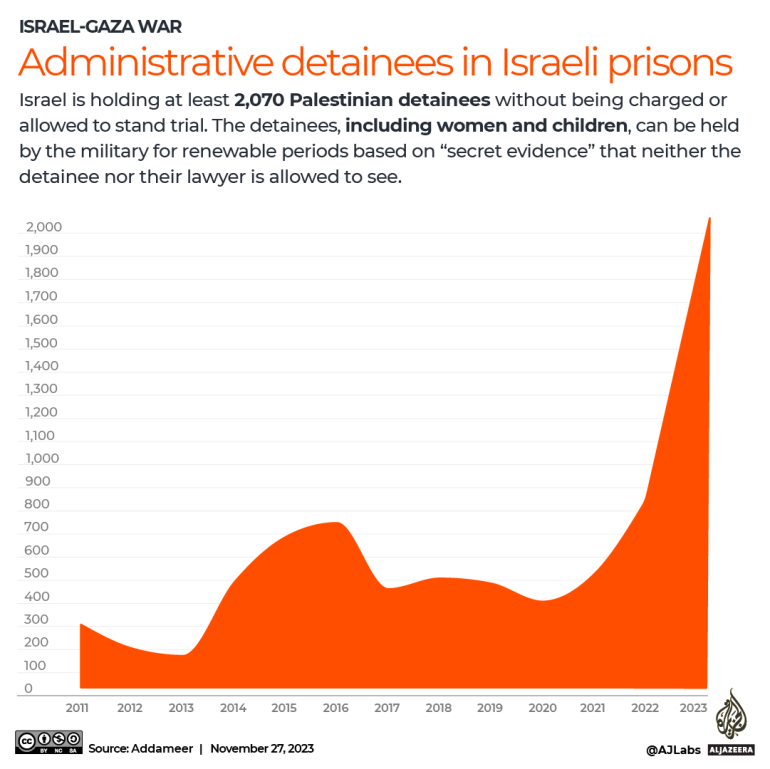Israel and Hamas agree to extend truce for seventh day
In a pivotal development, Israel and Hamas have jointly agreed to extend their truce for the seventh consecutive day, just minutes before the initial agreement was set to expire. The extension, announced by sources from both sides, comes against the backdrop of ongoing mediation efforts led by Qatar. This temporary pause in hostilities in the Gaza Strip is crucial, with both parties expressing commitment to the process of releasing hostages. This article delves into the details surrounding the extension, shedding light on the intricacies of the negotiations, the challenges faced, and the broader implications for the region.
![Ashraf Amra/Anadolu Agency]](https://trendingcon.com/wp-content/uploads/2023/11/AA-20231129-33060324-33060322-HAMAS_HANDS_OVER_ISRAELI_PRISONERS_TO_RED_CROSS_OFFICIALS-1701322436.webp)
Mediation by Qatar:
The extension of the truce is attributed to the mediating role of Qatar, which has been actively facilitating talks between Israel and Hamas. According to statements from the involved parties, the agreement is prolonged under the same terms as before. Key aspects of the arrangement include Hamas releasing ten Israeli hostages daily in exchange for the liberation of 30 Palestinian prisoners. This mechanism aims to strike a delicate balance, fostering an environment conducive to ongoing negotiations.
Last-Minute Tensions:
As the truce approached its expiration, uncertainty loomed over the prospect of an extension. The critical juncture was marked by disagreements between Israel and Hamas regarding the new list of Israeli captives slated for release from Gaza. Notably, Hamas initially reported that Israel rejected a proposed list, which included seven living captives and the remains of three individuals allegedly killed in previous Israeli airstrikes. However, Israel later clarified that Hamas submitted an improved list, ultimately paving the way for the extension.
Challenges in the Negotiation Process:
The talks between Israel and Hamas have become increasingly complex, especially as the release of most women and children held by Hamas has been secured. Analysts speculate that with a limited number of civilian hostages left, Hamas may seek a higher number of prisoner releases in exchange for freeing Israeli men and soldiers. Mohamed Elmasry, an analyst with the Doha Institute of Graduate Studies, emphasized the growing difficulty for Hamas to produce civilian hostages as the negotiations progress.
Implications for the Region:
The extension of the truce holds significant implications for the region, as it reflects the delicate nature of the ongoing negotiations. The evolving dynamics between Israel and Hamas, mediated by Qatar, underscore the intricate challenges inherent in reaching a sustainable resolution. The release of hostages remains a focal point, with the negotiation process intricately linked to the broader stability of the region.
Looking Ahead:
As the truce enters its extended phase, the international community keenly observes the developments in the Israel-Hamas negotiations. The intricate dance of diplomacy, mediated by Qatar, will continue to shape the course of events. The coming days will likely witness further attempts to address the remaining challenges in the negotiation process, providing a clearer picture of the potential for a lasting resolution.

Conclusion:
The extension of the truce between Israel and Hamas for the seventh day signifies both the complexities and the resilience of the negotiation process. Mediated by Qatar, the ongoing talks navigate through challenges, with the release of hostages at the forefront. The coming days will unveil whether the momentum towards a lasting resolution can be sustained, offering hope for a more stable and peaceful future in the region.
![Ashraf Amra/Anadolu Agency]](https://trendingcon.com/wp-content/uploads/2023/11/AA-20231129-33060324-33060322-HAMAS_HANDS_OVER_ISRAELI_PRISONERS_TO_RED_CROSS_OFFICIALS-1701322436-770x445.webp)


